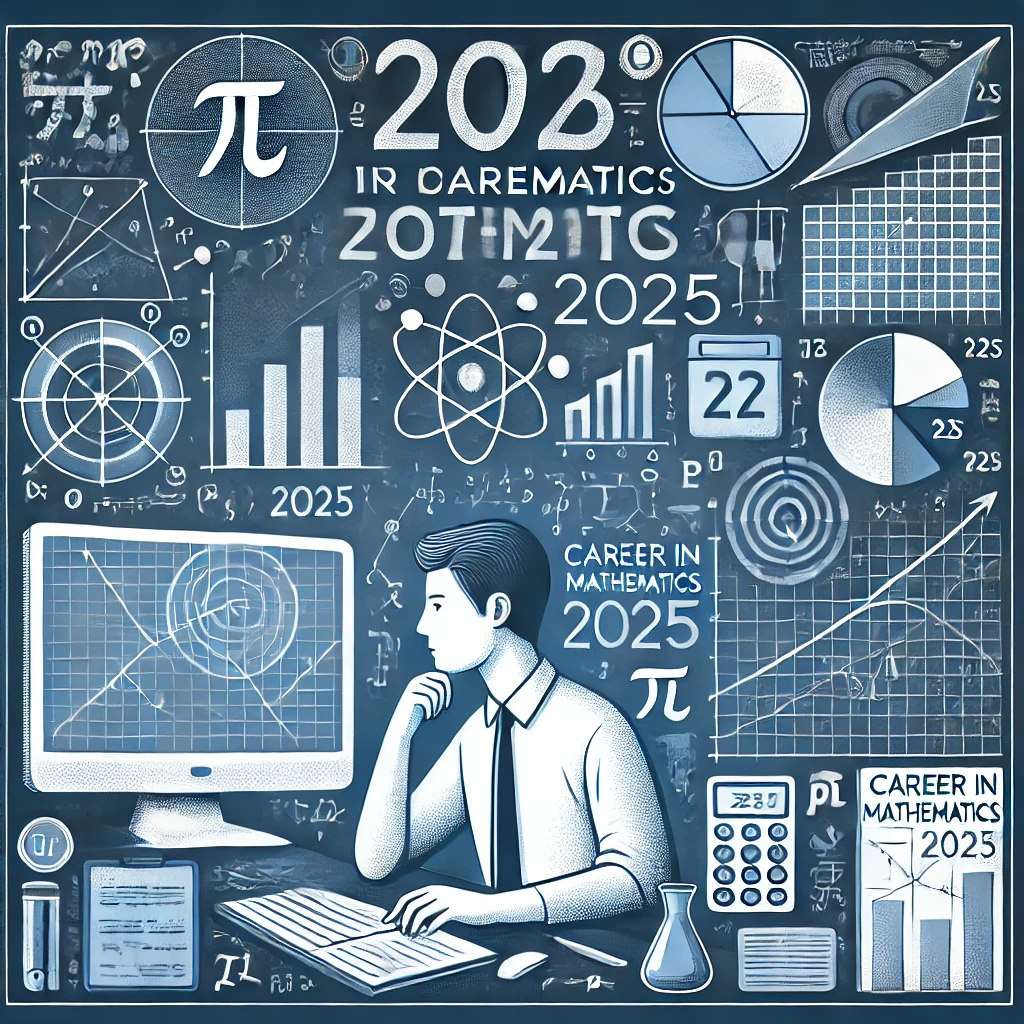Career in Mathematics: Top Paths, Courses, Jobs & Salary Scope in 2025
Mathematics is a foundational discipline that plays a critical role in science, technology, finance, data science, and research. A career in mathematics is not just limited to teaching or academia. In 2025, math graduates are in high demand across industries such as artificial intelligence, banking, insurance, logistics, and public policy. In this blog post, we’ll explore the best career options in mathematics, required qualifications, job roles, top employers, and expected salaries.
Why Choose a Career in Mathematics?
- Mathematics develops analytical and logical thinking skills
- High employability across sectors: finance, tech, education, research
- Strong foundation for interdisciplinary careers like data science, economics, actuarial science, and AI
- Opportunities in both public and private sectors
Educational Pathways
To build a successful career in mathematics, one can follow this academic path:
- Bachelor’s Degree: B.Sc. in Mathematics or Applied Mathematics (3 years)
- Postgraduate Degree: M.Sc. in Mathematics, Statistics, or Mathematical Sciences
- Ph.D.: For research and academic careers in universities or research institutes
- Additional certifications in Data Science, AI/ML, or Financial Mathematics can add value
Top Careers in Mathematics
1. Data Scientist
Use mathematical and statistical models to interpret complex data and guide business decisions. Requires knowledge of Python, R, SQL, and machine learning.
2. Actuary
Analyze financial risk and uncertainty using mathematical models. Commonly employed in insurance, pensions, and investment sectors.
3. Operations Research Analyst
Optimize logistics, resource allocation, and business processes using linear programming, simulation, and statistical analysis.
4. Statistician
Work with data collection, interpretation, and presentation. Employed in healthcare, government, marketing, and finance.
5. Academic Researcher or Professor
Engage in teaching and academic research at universities and colleges. Requires a Ph.D. in a mathematical discipline.
6. Cryptographer
Secure communication systems using number theory and encryption algorithms. Key roles in cybersecurity and national security sectors.
Top Recruiters
- Google, Microsoft, Amazon, and IBM
- Banks and financial institutions like RBI, SBI, Goldman Sachs
- Insurance firms: LIC, New India Assurance, Aon
- Government research organizations: ISRO, DRDO, CSIR
- Edtech and analytics firms: BYJU’S, Fractal Analytics, Mu Sigma
Average Salary After a Mathematics Degree
- Entry-level: ₹4–7 LPA
- Mid-level (5–8 years): ₹8–15 LPA
- Senior-level/Ph.D. roles: ₹15–30+ LPA
Future Scope
Mathematics is foundational to emerging domains such as:
- Artificial Intelligence and Machine Learning
- Quantum Computing and Theoretical Physics
- Climate Modeling and Environmental Analytics
- Fintech, Blockchain, and Cryptography
Conclusion
A career in mathematics is intellectually rewarding, financially stable, and future-proof. With diverse roles spanning industries and impactful contributions to technology, finance, and science, mathematics opens a world of opportunities. If you’re passionate about problem-solving and logical thinking, mathematics can be your ideal career path in 2025 and beyond.
Stay updated with our blog for more career insights, course guides, and tips on succeeding in math-related professions.



